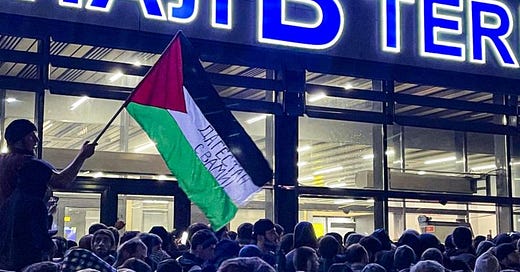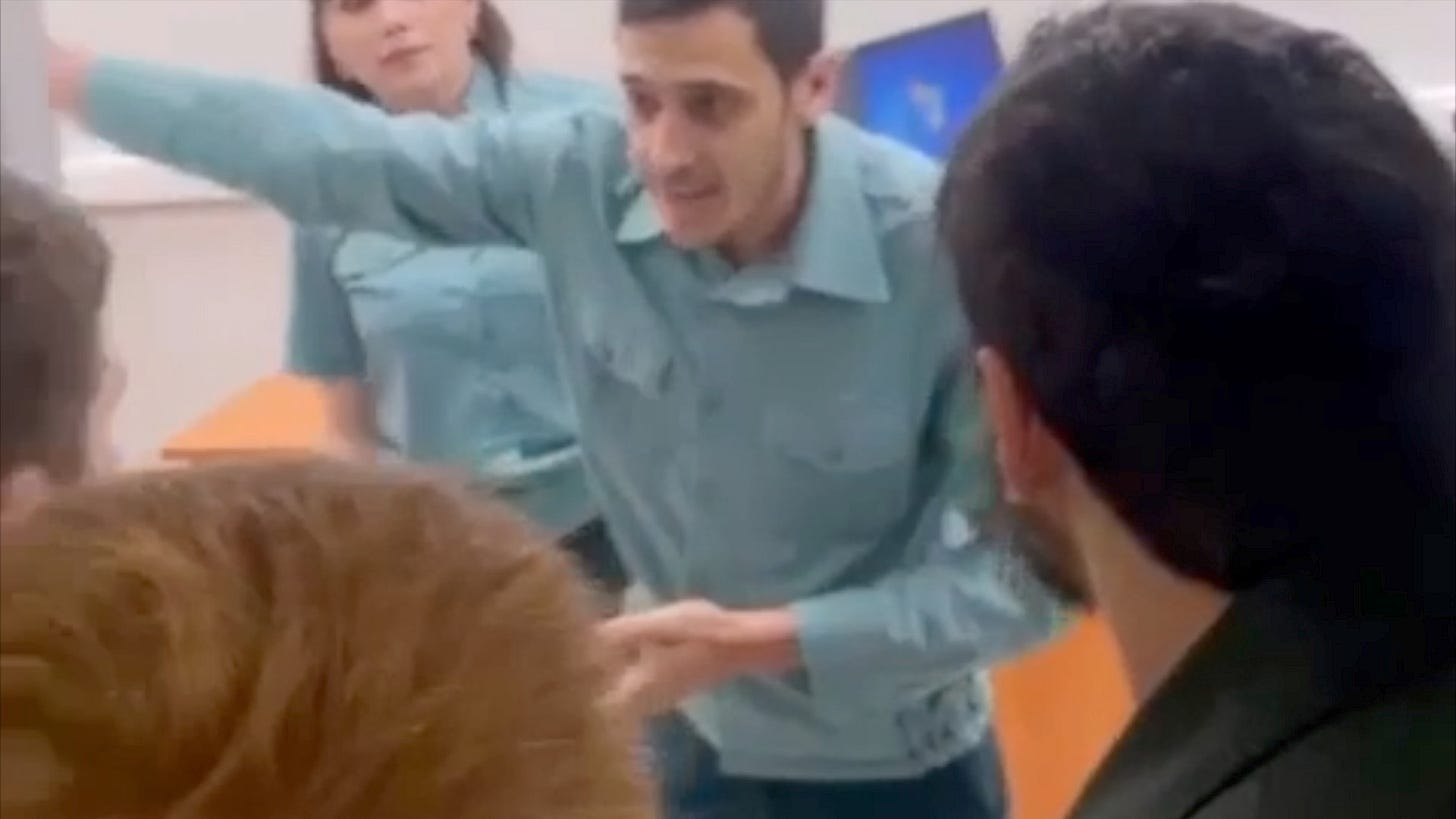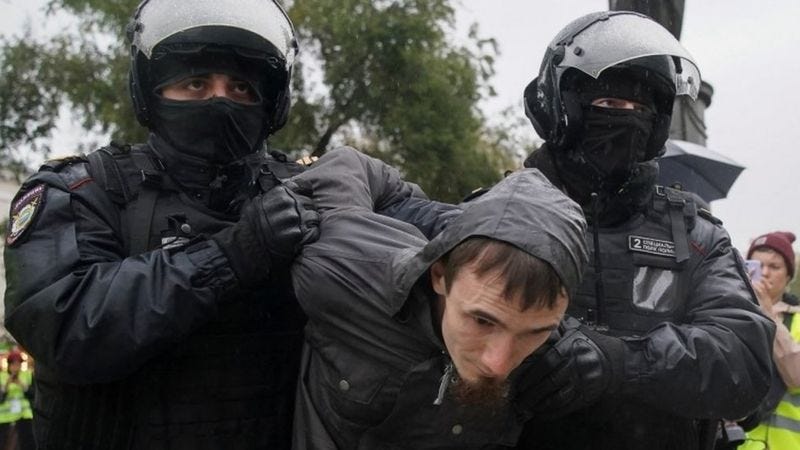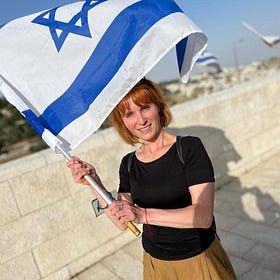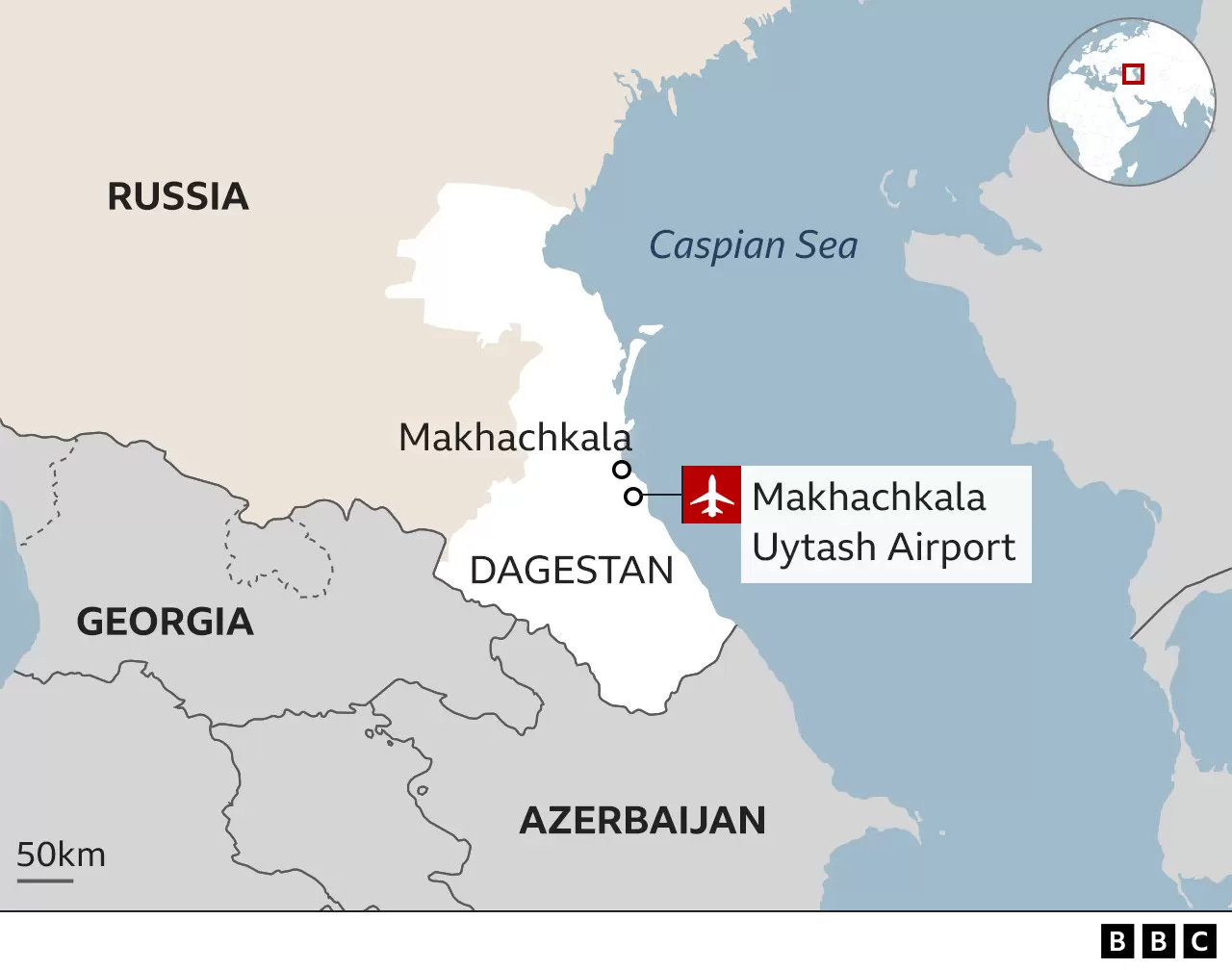What just happened in Dagestan?
Footage shared around the world of anti-Semitic protestors storming an airport looking for Israelis, have raised huge concerns and many questions about what's going on in this troubled republic.
By Elizaveta Fokht and Anastasia Golubeva.
After a weekend of unrest which culminated in hundreds of people storming Makhachkala airport hunting down passengers who’d just arrived on a flight from Tel Aviv, many are asking what’s going on in Dagestan and if the North Caucasus republic has a problem with anti-Semitism. BBC Russian has been speaking to experts and activists who know the region well, to understand more about the complex web of motivating factors behind a disturbing series of events.
On the evening of 29 October, hundreds of angry protestors, some carrying Palestinian flags, stormed Makhachkala airport in Dagestan breaking through security and making their way out onto the runway.
They were acting on rumours being spread online, that a scheduled flight that had just landed from Tel Aviv was carrying Israeli ‘refugees’ who were going to be resettled in Dagestan.
Videos from the scene showed the protestors –mostly young men, running through the airport terminal, looking for the alleged refugees, demanding to see passengers’ passports, attempting to get into a plane on the runway, and trying to overturn a police car in the car park outside.
A bus carrying some of the passengers from the Tel Aviv flight was stoned, and some of those with Israeli passports had to be evacuated to safety by helicopter.
BBC is blocked in Russia. We’ve attached the story in Russian as a pdf file for readers there.
One suspected “Israeli’ turned out to be a Russian-Uzbek cardiac surgeon from Moscow.
Dilshot Mamadaliev, was captured on video footage widely shared on social media, surrounded by a crowd of aggressive men demanding to see his documents and asking him who he was by nationality. Mamadaliev told the BBC he had no idea what was going on and what they wanted from him.
He was eventually rescued by local security officers and was able to go on to his destination after spending several hours holed up in the police station at the airport. His passport, which was taken from him by the crowd, was eventually returned the following day.
After several chaotic hours, order was finally restored when riot police intervened. At least 83 people were arrested and a criminal investigation has been launched.
The disturbance at the airport was not the only anti-Semitic incident in Dagestan over the weekend.
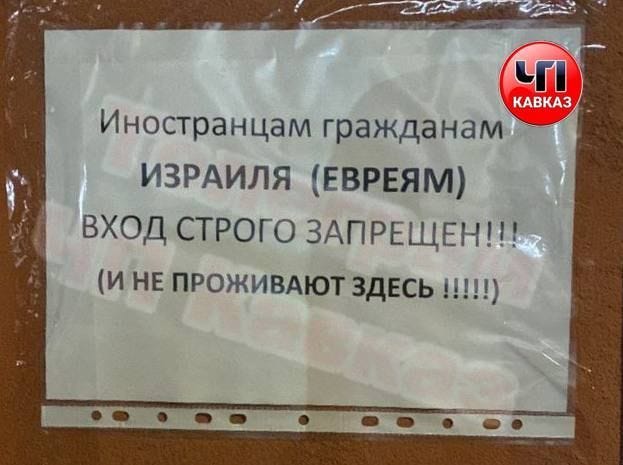
The previous day in the nearby town of Khasavyurt, local people, again fuelled by rumours that ‘Israeli refugees’ had arrived, gathered outside a hotel, throwing stones and shouting slogans. After the incident the hotel management put up a sign which said there were no Jews in the hotel and that they were ‘strictly forbidden’ from staying there.
Elsewhere in the North Caucasus a crowd gathered outside the city administration building in Cherkessk, in Karachai Cherkessia, on Saturday calling for Israelis to be banned from entering the republic. And in Nalchik, in Kabardino-Balkaria on Sunday, unknown individuals set fire to a Jewish cultural centre that was under construction, throwing burning tyres inside the building and daubing an anti-Semitic slogan on the wall.
External influences
The events seem to have caught both the local authorities and the Kremlin off guard and both have sought to play down the situation and blame outsiders for the violence.
Sergey Melikov, the head of Dagestan, condemned the disturbances but also expressed sympathy for the rioters. "Due to the fakes spread by our enemies, some very young guys found themselves on the brink of breaking the law,” he said.
In Moscow, presidential press spokesman Dmitry Peskov, also said the unrest was "the result of external interference”.
Vladimir Putin was more specific, when addressing the violence at a specially convened meeting of the heads of Russia’s security agencies at his residence in Novo-Ogarevo on Monday. The “Makhachkala events” had been sparked off by disinformation on social media coming from “the territory of Ukraine by the hands of Western intelligence agencies", he said.
The US has dismissed accusations of involvement as absurd.
“Classic Russian rhetoric,” US National Security Council spokesman John Kirby told a White House briefing.
“When something goes bad in your country, you blame somebody else.”
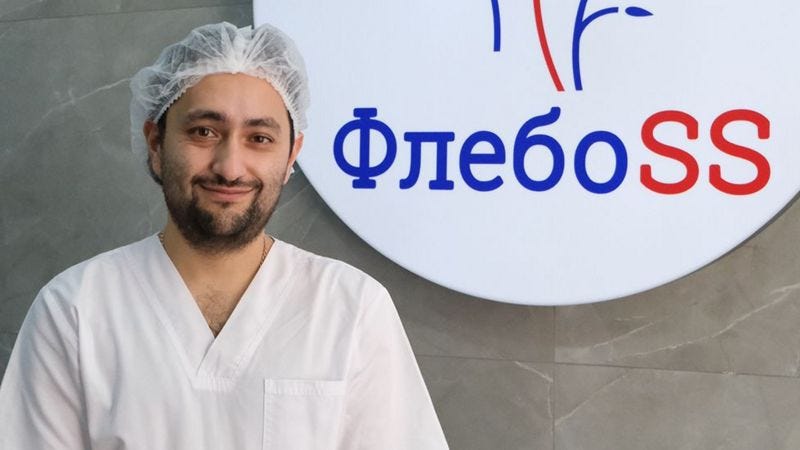
The Russian authorities have also accused former Duma deputy Ilya Ponamarev, of having a hand in the unrest. They claim he is associated with the ‘Utro Dagestan’ Telegram channel, which was particularly active in spreading information about the airport attack and encouraging the participants.
Ponamarev, who now lives in Ukraine and has previously voiced strong support for cross-border raids into Russia by pro-Ukrainian Russian sabotage groups, denies any connection to the weekend’s events.
Security failure
Many commentators have expressed surprise at the failure of local police and security forces to get a grip as events spun out of control on Sunday night.
"Dagestan is literally filled with security personnel, and suddenly there's a situation where an angry mob can simply storm the airport,” says Tatiana Lokshina, a human rights activist and Deputy Director of the Europe and Central Asia Division at Human Rights Watch.
“The very same security forces who usually crackdown on protests, kidnap people, and so on appeared completely helpless."
Lokshina says there are only two explanations for the security forces' failure to act. Either they were taken completely by surprise, or local officers simply chose not to prevent the riot to avoid appearing as "bad Muslims".
"If it’s the latter case, it means that the leadership is entirely incapable of managing its own personnel," she says.
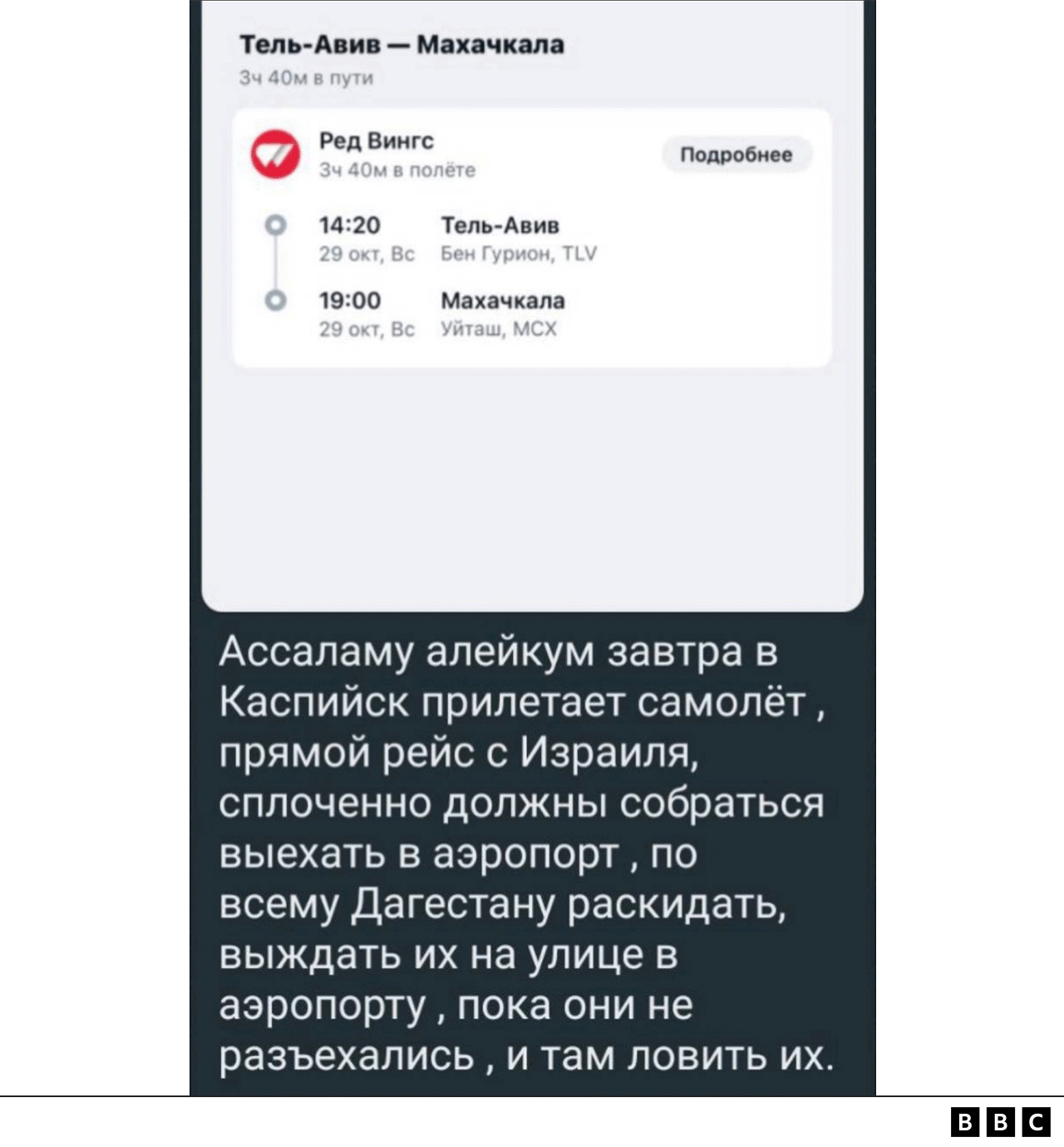
A human rights activist from the North Caucasus, who spoke to the BBC on the condition of anonymity for safety reasons, told us the most likely reason for the security forces' inadequate response was "ineptitude".
"Everyone was following what was happening, they all saw the messages about the plane from Tel Aviv – there's nothing too complicated in planning and taking measures,” he said. “But they didn't pay attention, they didn't manage to control the situation, and it exploded.”
According to the source, some of the security forces may even have supported the mob. On numerous videos, some police officers can be heard telling the rioters: "Brothers, we're on your side, but let's not break the law."
Tatiana Lokshina also thinks the security forces must have been monitoring local Telegram channels and knew about the planned storming of the airport.
Maryam Alieva, a human rights activist from Dagestan, agrees: "It wasn't like they just posted provocative information in a group, and an hour later, people gathered. This went on for several days, but there was no reaction, nothing.”
Alieva says the Dagestani authorities completely failed to counter the information and misinformation that was being spread on Telegram channels in the run up to the disturbances on Sunday.
Local people had tried to coordinate a rally in support of Palestine with the spiritual administration of Muslims, but the authorities denied their request, she told the BBC. That's when messages about the supposed refugee flight from Israel started circulating in chat groups.
“The Federal authorities also demonstrated their inability to prevent, suppress, or even respond post factum to incidents like these,” says HRW’s Tatiana Lokshina.
"The authorities are not even capable of clearly stating the absolute inadmissibility of such actions, the inadmissibility of any manifestations of interethnic and interfaith discord, let alone violent actions."
Lokshina argues that the disturbances in Makhachkala, like Prigozhin’s aborted mutiny back in June, highlight the fragility of Russia’s political system right now,
"Something like this happens in a huge North Caucasus city. Tomorrow, something else will trigger a similar reaction. Where will the next flashpoints be, and what will the fire be like? Who will be running around with a fire extinguisher? Moscow clearly seems to have lost the skill of running with a fire extinguisher," she says.
Connecting to a wider Islamic world
It’s clear that many of young men who took part in the airport riot were motivated by a genuine sense of outrage at the images they’d seen on social media of Palestinian civilians, and particularly children, injured in Israel’s retaliatory attacks on Gaza.
People in Dagestan have always closely followed the Israeli-Palestinian conflict, says the local human rights activist.
For them things didn’t start with the Hamas massacre of Israelis on 7 October, he explains. They have been constantly exposed to videos and photos of Palestinians affected by the conflict. Many Dagestanis are very upset by what they’re seeing and in the last few days emotions have been running very high, prompting some individuals to take action.
“Many young people in the North Caucasus, especially in Dagestan and Karachai-Cherkessia, know Arabic,” says Ekaterina Sokiryanskaya, is an expert on the North Caucasus.
“Their religious education is in Arabic and they follow Arabic news sources. There is a very active blogosphere in the region, where issues related to the Middle East conflict are actively discussed, and these discussions can fuel strong emotions.”
Many public figures in the North Caucasus actively support the people of Gaza and criticize Israel.
Khabib Nurmagomedov, Dagestan’s mixed martial arts superstar for example has dedicated most of his recent Instagram posts to the situation in Gaza, which he describes as "genocide."
Several people who the BBC spoke to in the region have made the point that people in the North Caucasus – especially those who are religious, see themselves as part of a wider global Islamic community.
Since the attack by Hamas and the start of Israel's retaliatory airstrikes, most Muslim countries have expressed support for Gaza, and pro-Palestinian demonstrations have taken place in countries all over the world.
For some of those who took part in the disturbances in Makhachkala, taking to the streets was a chance to feel a connection with the global Islamic world, says the human rights activist. "Look, the whole world has risen, and we are with them. Look at our performance, we were on the world media, on Al Jazeera, everyone saw that we are not sleeping," he said.
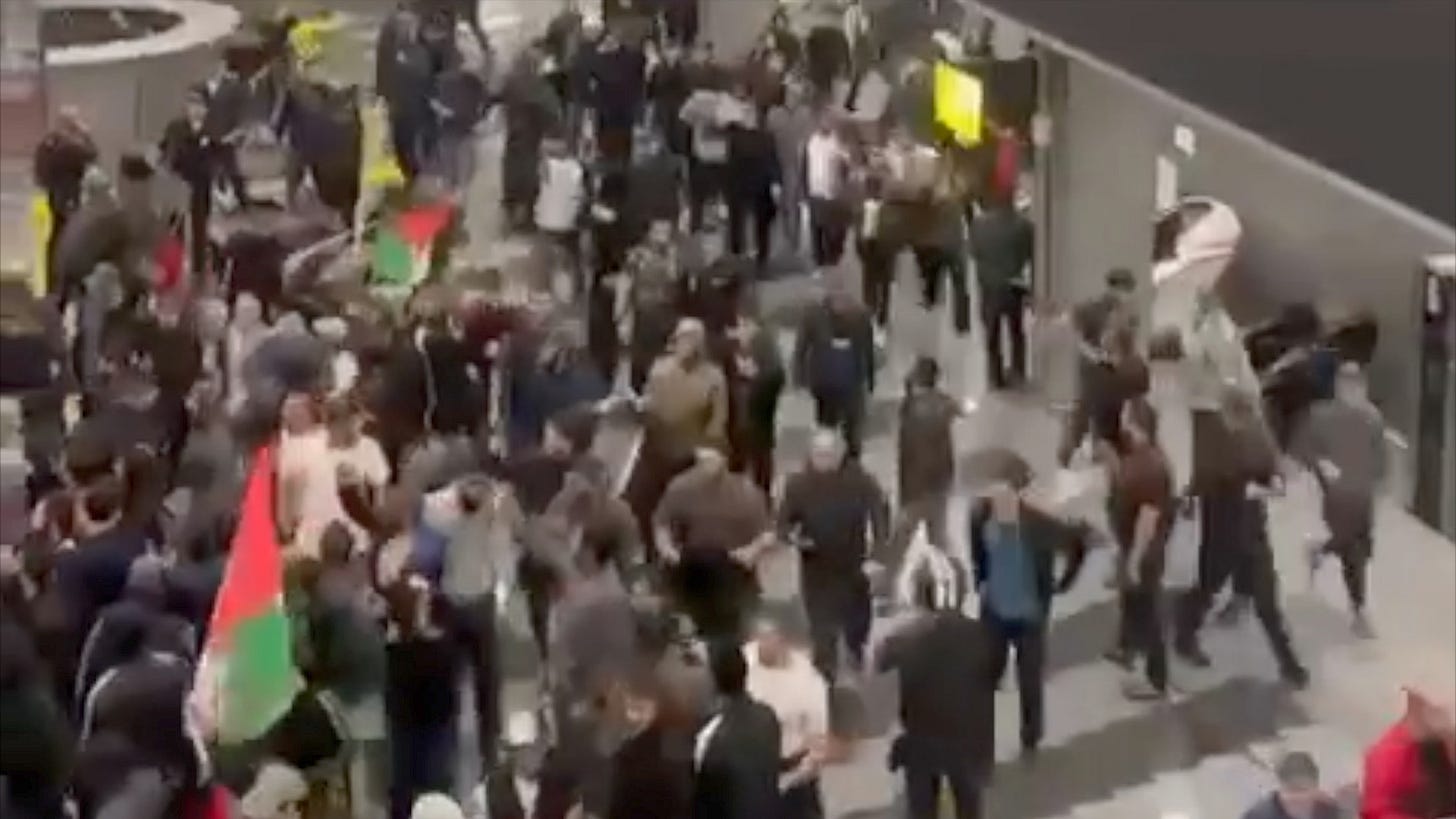
Social tensions
Another factor which has clearly contributed to the weekend’s unrest, are the ongoing social problems in Dagestan and the wider North Caucasus region.
In 2022 Dagestan saw some of the biggest protests in the Russian Federation against the campaign to mobilise young men to fight in Ukraine. Dozens of people were detained as a result.
During the first three months of the Russian invasion of Ukraine, Dagestan had the highest number of casualties out of all Russian regions. A running count of Russia’s war dead, by the BBC Russian Service and Mediazona, showed that one in every ten soldiers killed in Ukraine between February and May 2022 was from Dagestan. As the war progressed the casualties gradually began to decrease as more young men were conscripted from other parts of the country and especially from the industrial regions of central Russia.
Dagestan and neighbouring North Caucasus republics are also among the poorest regions in Russia.
In Makhachkala, streets are frequently blocked due to constant power outages and water cuts. As the local human rights activist told the BBC, electricity in Dagestan goes out "with every gust of wind".
Protests have also erupted in the republic over the construction of a landfill near the Sarikum sand dune, a protected area of natural beauty.
In situations like this, it’s possible that the disturbances at the weekend were a way for local people to vent anger and frustration about their lives in general, says the human rights activist.
"You can't go against the Russian government that oppresses you, or against Dagestan itself. But here, there's an opportunity to channel your frustration, dissatisfaction, fear of life, and the fear of being conscripted into the war in Ukraine, regardless of your stance on it. And all of this exploded."
"The level of violence in Russia as a whole has noticeably increased – this is noted by all experts,” says Ekaterina Sokiryanskaya. “This includes racial violence, gender violence, and domestic violence.
“So, aggression and frustration are on the rise everywhere – and in the North Caucasus, where there have been unresolved problems for many years, it is particularly noticeable. There's a huge accumulation of negative emotions and frustration. This is happening in the absence of real politics and alternative perspectives, which is why Islamism becomes almost the only alternative ideology. And now there is an opportunity to express all of this, to release emotions – especially on a topic that deeply touches people."
The roots of anti-Semitism
The violent events of last weekend have left many people asking where this sudden outburst of anti-Semitism came from and whether Dagestan has a particular problem.
It’s clear that both internal and external factors were at play here.
Surveys conducted in Russia in the past few years have indicated an overall decrease in anti-Semitic sentiments. The Russian Jewish Congress has observed this trend as well.
But since the start of the war in Ukraine things have changed.
Many senior Russian official, have caused offence recently both inside and outside Russia with their choice of language when referring to Jewish issues.
In November 2022 Foreign Minister Sergei Lavrov’s off-the-cuff remark that Hitler had Jewish roots caused a diplomatic row between Russia and Israel.
Vladimir Putin’s joke that veteran politician Anatoly Chubais, had changed his name to "Moishe Israelovich" after leaving Russia, and moving to Israel also raised eyebrows.
WEEKEND READ. Not going anywhere: Russian new arrivals in Israel react to the Hamas attack
By Elizaveta Fokht. Since the start of the Russian invasion of Ukraine, tens of thousands of Russians have relocated to Israel. They now find themselves in a country at war and traumatised by an attack which caused the worst ever loss of civilian life in…
Following the HAMAS attack on October 7, Russians who’ve relocated to Israel due to Russia's invasion of Ukraine have been the butt of much mockery and schadenfreude on state television talk shows.
“When senior officials make dubious jokes, it sends a message that one can get away with more,” says Aleksandr Verkhovsky of the SOVA Centre research organisation. “Ordinary people see it as a green light.”
A 2023 survey by the US-based Anti-Defamation League, seems to corroborate this, showing that up to a quarter of Russians believe in some form of anti-Semitic stereotypes.
When talking about anti-Semitism in the North Caucasus, and Dagestan in particular, regional experts say the picture is complicated and attitudes can be very different depending on individuals, communities and generations.
Dagestan is home to a centuries-old Jewish community known as the ‘Mountain Jews’. Although migration has now much reduced their number, Jews and Muslims have generally continued to live peacefully alongside each other.
Regional experts say there have been some areas of concern recently – a local imam spreading widely discredited claims that a Jewish woman was responsible for poisoning the Prophet Mohammad; young people automatically questioning the ethnicity of anyone holding different views to their own.
But while some observers say these things show Dagestan has ‘above average’ levels of anti-Semitism, others say that overall the situation is no better or worse than anywhere else in Russia.
It’s clear that the motivating factor behind the airport riot and associated events was the situation in the Middle East, and that the rioters felt they had a mandate to take to the streets.
Dagestanis switching on their televisions, and reading the news on social media in the past two weeks will have seen President Putin expressing concern over the situation in Gaza and avoiding directly condemning the Hamas attack on Israel, as well as Hamas officials being welcomed to the Kremlin, on an official visit.
“This aligning of views between the Kremlin and some Muslim communities in Russia has contributed to the perception that this was an open and tolerated topic of discussion, says Ekaterina Sokiryanskaya.
The fact that the police did not intervene straight away when a mob surrounded the hotel in Khasavyurt looking for Jews, or when young men started checking newly arrived passengers’ passports at the airport, only encouraged people to think what they were doing was acceptable.
The authorities missed an opportunity to intervene early and pacify the situation, says rights activist Maryam Alieva.
She categorises the rioters as people with “a lack of education and logical thinking”.
Instead, of turning up hour and a half after the airport riot had started and violently suppressing the protestors, the police should have intervened the day before and explained to people that what they were doing was wrong, and provided a way for the situation to be diffused peacefully, she says.
The role of disinformation
Another big contributory factor in the disturbances was people’s susceptibility to conspiracy theories, which spread like wildfire on social media and in chat groups.
It’s not the first time this has happened either in Dagestan, or indeed in Russia as a whole.
Anthropologist Alexandra Arkhipova, author of the "(Not So) Fascinating Anthropology" Telegram channel, says that during the Covid-19 pandemic, people all over Russia people were taken in by all kinds of conspiracy theories.
Dagestan has proved a fertile ground for the belief that 5G mobile phone masts are somehow harmful to people’s health, and as a result there have been numerous protests at installation sites in the republic.
“If a person believes in one conspiracy theory, they are generally more likely to agree with another," says Arkhipova.
In Dagestan, she adds, most people have what she calls ‘more developed horizontal social connections’, ie they belong to extended family groups and wider communities. It means, she says, that they are more likely to be influenced by peer pressure.
The local human rights activist who spoke to us anonymously, echoes this assessment. “The important thing is not how much you believe, but that you are participating in the commotion with your fellow believers,” he said.
In the days leading up to the airport riot Telegram channels and local chat groups were full of rumours about hundreds of thousands of Israelis coming to the Caucasus, and of “Jews taking over our land”.
Alexandra Arkhipova says she monitored posts like these not just in Dagestan but thousands of miles away in places like Ulyanovsk in central Russia.
The effect of such messages was to create what she calls a moral panic.
“People believe there is a danger, they identify an enemy, and then they try to exclude that enemy from their space or even harm them,” she says.
In the case of the weekend’s events in Dagestan people were looking for someone to blame, and something to explain the fears, confusion and upset many people are feeling about many things happening around them, says Aleksandr Verkhovskiy from SOVA.
In situations like these, he adds in a bleakly matter of fact way, many people will think they’ve found that explanation in the age-old notion of the “Jewish conspiracy”.
“Of course, the situation of the war in Ukraine and the proximity of the Middle East requires the updating of some explanations. And these are the kinds of explanations that are found."
Read the full story in Russian here.
Additional reporting by Anastasia Platonova.
Edited and adapted by Jenny Norton.

